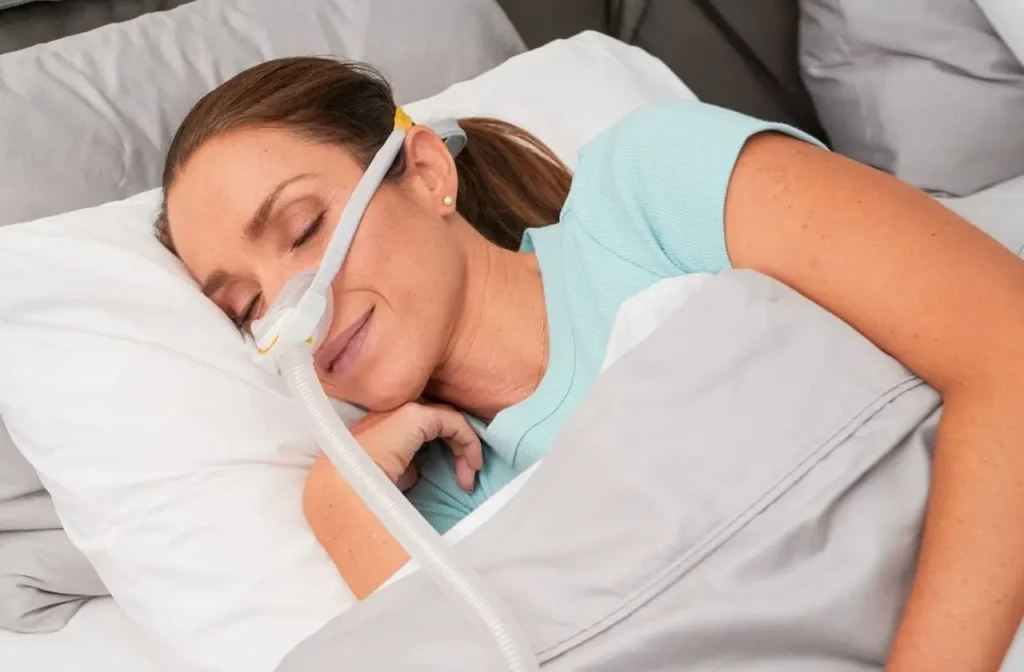Sleep studies are essential diagnostic tools in modern healthcare, providing critical insights into various sleep disorders that affect millions of Australians. These comprehensive examinations monitor multiple body functions during sleep, including brain activity, eye movements, heart rhythm, and breathing patterns.
For Canberra residents experiencing sleep-related issues, understanding the financial aspects of sleep studies is crucial in accessing appropriate care. The costs can vary significantly based on factors such as:
- Testing location (hospital vs home-based)
- Type of diagnostic equipment used
- Medicare coverage eligibility
- Private health insurance benefits
A clear understanding of these costs enables patients to:
- Make informed decisions about their healthcare options
- Access appropriate diagnostic services
- Plan for potential out-of-pocket expenses
- Navigate available funding support
The field of sleep medicine in Canberra offers various pathways for diagnosis and treatment, with options ranging from fully bulk-billed services to private healthcare facilities. This guide aims to clarify the costs associated with sleep studies, helping patients make well-informed decisions about their sleep health journey.
Overview of Sleep Studies
Sleep disorders affect millions of Australians, ranging from mild disturbances to severe conditions requiring medical intervention. These disorders include:
Medicare benefits cover a substantial portion of sleep study costs Canberra when specific criteria are met. To access Medicare rebates, patients must obtain a referral from a qualified healthcare provider, typically a GP or specialist physician.
- Insomnia
- Narcolepsy
- Restless Leg Syndrome
- Obstructive Sleep Apnea (OSA)
OSA stands as the most common sleep-related breathing disorder, affecting approximately 5% of Australians. This condition occurs when the throat muscles intermittently relax during sleep, blocking the airway and causing breathing interruptions.

Diagnostic Process for OSA
The path to diagnosing OSA follows a structured approach:
- Initial Assessment
- Medical history review
- Physical examination
- Sleep questionnaires
- Evaluation of symptoms
- Sleep Study Options
- Polysomnography: A comprehensive overnight test measuring brain waves, blood oxygen levels, heart rate, breathing patterns
- Home Sleep Apnea Testing: Portable devices recording breathing patterns, oxygen levels, and heart rate in familiar surroundings
- Data Analysis
- Recording of respiratory events
- Measurement of oxygen desaturation
- Assessment of sleep quality
- Documentation of body position effects
Sleep physicians analyse these results to determine the presence and severity of OSA. The severity classification depends on the number of breathing interruptions per hour:
- Mild: 5-15 events
- Moderate: 15-30 events
- Severe: >30 events
The diagnostic process enables healthcare providers to develop targeted treatment plans based on individual patient needs and severity levels. For those seeking solutions for their sleep issues, it’s essential to explore options such as sleep studies in Melbourne, which provide comprehensive assessments tailored to individual requirements.
Types of Sleep Studies
Sleep studies in Canberra are conducted through two primary methods: hospital-based and home-based assessments. Each approach offers distinct advantages for different patient needs and circumstances.
Hospital-Based Sleep Studies
Hospital-based sleep studies involve conducting sleep assessments in a medical facility. This method offers several benefits, including:
- Comprehensive monitoring in a controlled environment
- Direct supervision by trained sleep technicians
- Multiple parameters measured simultaneously
- Ideal for complex sleep disorders
- Higher accuracy in data collection
- Immediate medical assistance if required
Home-Based Sleep Studies
Home-based sleep studies, on the other hand, allow patients to undergo sleep assessments in the comfort of their own homes. This approach has its own set of advantages, such as:
- Conducted in familiar sleeping environment
- Cost-effective alternative
- Minimal disruption to regular sleep routine
- Suitable for suspected sleep apnoea
- Reduced waiting times
- Greater accessibility for rural patients

The Role of Portable Monitoring Devices
Portable monitoring devices have transformed sleep medicine by offering accurate diagnostic capabilities outside traditional clinical settings. These devices track essential sleep parameters: Read more about diagnostic at https://www.mdpi.com/journal/diagnostics
- Breathing patterns
- Heart rate
- Blood oxygen levels
- Body position
- Snoring intensity
Modern portable monitors feature wireless technology, smartphone integration, and cloud-based data storage. These innovations enable:
- Real-time data transmission to healthcare providers
- Automated analysis of sleep patterns
- Remote monitoring capabilities
- Simplified patient experience
Factors Influencing the Choice of Sleep Study
The selection between hospital and home-based studies depends on individual factors such as:
- Severity of symptoms
- Presence of other medical conditions
- Patient mobility
- Insurance coverage
- Geographic location
- Personal preference
Healthcare providers in Canberra assess these factors to recommend the most appropriate type of sleep study for each patient’s specific situation.
Cost Factors for Sleep Studies in Canberra
The cost of sleep studies in Canberra varies significantly based on multiple components. Understanding these cost factors helps patients make informed decisions about their diagnostic journey.
Basic Cost Components:
- Facility fees: $250-$800
- Equipment charges: $150-$300
- Professional interpretation: $200-$400
- Follow-up consultation: $100-$200
Medicare Coverage Requirements:
- Valid referral from an approved healthcare provider
- Presence of specific sleep-related symptoms
- Meeting clinical necessity criteria
- Compliance with Medicare Benefits Schedule (MBS) guidelines
Private health insurance policies may offer additional coverage for sleep studies. The level of coverage depends on:
- Insurance policy type
- Level of extras cover
- Waiting periods
- Annual claim limits
Additional Cost Considerations:
- Transportation costs for hospital-based studies
- Equipment calibration fees
- Technical support services
- Data analysis and reporting
Air Liquide Healthcare and similar providers in Canberra often offer flexible payment options and bulk-billing arrangements for eligible patients. These providers work directly with Medicare and private health insurers to minimise out-of-pocket expenses.
For high-risk patients meeting specific clinical criteria, bulk-billing options may be available through public health facilities. These arrangements require appropriate referrals and documentation of medical necessity.
If you’re considering a sleep study but are located in another city, similar services are also available in places like Sydney, Hobart, and Ade
Accessing Sleep Studies in Canberra: A Patient’s Perspective
Recent patient experiences highlight the accessibility of sleep studies in Canberra through established pathways. A standardised referral process begins with a GP consultation, where patients discuss their sleep-related symptoms and receive appropriate referrals to sleep specialists. Click here to find more about symptoms.
“The referral process was straightforward. My GP documented my symptoms and risk factors, then referred me to a sleep specialist. Within three weeks, I had my first consultation,” shares Sarah M., a Canberra resident diagnosed with sleep apnea in 2023.
High-Risk Patient Priority Access
Patients presenting with significant risk factors receive expedited access to bulk-billed studies. These risk factors include:
- Severe snoring with witnessed apnoeas
- Body Mass Index (BMI) above 35
- Type 2 diabetes with cardiovascular complications
- Commercial drivers or heavy machinery operators
Advocating for Timely Access
Sleep study candidates can take specific steps to facilitate prompt testing:
- Document sleep-related symptoms in a diary
- Gather evidence of impact on daily activities
- Request written support from family members who witness sleep disturbances
- Contact private health insurance providers about coverage options
Air Liquide Healthcare’s Sleep Solutions offers bulk-billing options through various sleep brands across Canberra, including SNORE Australia and Healthy Sleep Solutions. These providers maintain partnerships with local medical centres, creating integrated care pathways for patients requiring sleep studies.
The referral network encompasses multiple locations throughout Canberra, reducing wait times and improving accessibility. Medicare-eligible patients meeting specific criteria can access bulk-billed diagnostic services, particularly through public health facilities and participating private providers.
Treatment Options After Diagnosis: Beyond CPAP Therapy
While CPAP therapy remains a primary treatment for Obstructive Sleep Apnea (OSA), alternative approaches offer effective solutions for patients seeking different options. These alternatives can work independently or complement existing CPAP treatment.
Alternative Treatment Modalities:
- Positional Therapy DevicesSmart belts and position monitors
- Anti-snoring pillows
- Specially designed sleep shirts
- Oral AppliancesCustom-fitted mandibular advancement devices
- Tongue-retaining devices
- Professional dental adjustments
Lifestyle Modifications for Better Sleep
Implementing specific lifestyle changes can significantly reduce OSA symptoms:
- Weight ManagementStructured exercise programmes
- Dietary modifications
- Professional nutritionist consultation
- Sleep HygieneRegular sleep schedule
- Optimal bedroom environment
- Reduced screen time before bed
Medication Options
Targeted medications address specific sleep-related issues:
- Nasal decongestants for improved breathing
- Anti-inflammatory medications
- Allergy treatments
- Sleep-promoting supplements
Combination Approaches
Research indicates combining treatments often yields better results. A sleep specialist might recommend:
- Morning decongestants + evening positional therapy
- Oral appliance + weight management programme
- CPAP therapy + lifestyle modifications
These treatment options demonstrate varying success rates depending on individual factors such as OSA severity, body composition, and lifestyle habits. Patients should discuss personalised treatment plans with qualified healthcare providers to determine the most suitable approach for their specific condition.
Providers and Services in Canberra: Navigating Your Options
Canberra offers a variety of sleep study providers in both the public and private sectors. The Canberra Hospital Sleep Laboratory is the main public facility, with extensive diagnostic abilities and a team of skilled sleep specialists.
Private Options
There are several private options available, including:
- Sleep Solutions Australia – Specialising in home-based sleep studies and CPAP therapy
- Healthy Sleep Solutions – Offering both in-lab and home sleep testing
- Complete Care Sleep Solutions – Providing comprehensive sleep disorder management
- Independent Sleep Physicians – Operating through private practices
The Impact of Telehealth on Sleep Medicine
The rise of telehealth has changed the way sleep medicine is delivered in Canberra. With virtual consultations, it is now possible to:
- Conduct initial sleep assessments
- Hold follow-up appointments
- Make adjustments to CPAP therapy
- Monitor sleep data remotely
Many providers have embraced a hybrid service model, combining both in-person and virtual care. This approach is particularly beneficial for patients living in remote areas or those facing mobility challenges.
Requirements for Medicare-Approved Telehealth Consultations
In order to qualify for Medicare-approved telehealth consultations, the following criteria must be met:
- A valid referral from a GP
- Access to a reliable internet connection
- Basic technology setup (such as a smartphone or computer with a camera)
Accreditation Standards for Sleep Study Providers
The Australian Sleep Association has established strict accreditation standards for sleep study providers. Patients can verify the credentials of facilities by visiting their website or directly requesting documentation from the providers.
Factors to Consider When Choosing a Provider
When selecting a provider, it is important to take into account the following factors:
- Waiting times for appointments
- Availability of equipment
- Options for Medicare billing
- Accessibility based on geographic location
- Capabilities for telehealth services
Variability of Private Health Insurance Coverage
It is worth noting that private health insurance coverage can vary significantly among different providers.
Health Implications of Untreated Sleep Disorders: More Than Just Fatigue
Sleep disorders, particularly Obstructive Sleep Apnea (OSA), carry significant health risks beyond the immediate symptoms of daytime fatigue. Research indicates untreated OSA can lead to severe medical complications affecting multiple body systems.
Cardiovascular Impact:
- Increased risk of high blood pressure
- Higher likelihood of heart attacks
- Greater chance of developing irregular heartbeats
- Elevated risk of stroke
Cognitive and Mental Health Effects:
- Memory problems and difficulty concentrating
- Increased risk of depression and anxiety
- Reduced decision-making abilities
- Impaired executive function
Physical Safety Concerns:
- 2.5 times higher risk of motor vehicle accidents
- Decreased workplace productivity
- Increased risk of workplace accidents
- Compromised physical coordination
Metabolic and Hormonal Disruptions:
- Insulin resistance leading to type 2 diabetes
- Weight management difficulties
- Hormonal imbalances
- Compromised immune system function
The severity of these health implications emphasises the critical importance of proper diagnosis and treatment through sleep studies. Research shows that patients who receive appropriate treatment experience significant improvements in their quality of life and reduction in associated health risks.
“Sleep disorders affect not just the individual but can impact entire families through decreased quality of life and increased healthcare costs. Early intervention through proper diagnosis can prevent the cascade of health complications associated with untreated sleep disorders.” – Sleep Health Foundation
Seeking professional medical advice and undergoing appropriate sleep studies in Canberra represents a crucial step in preventing these serious health complications and maintaining long-term wellbeing.

